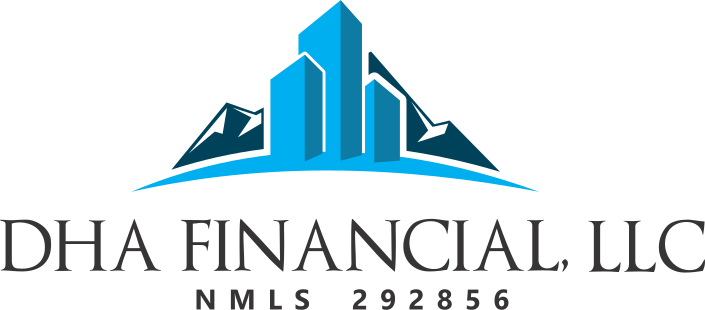Frequently asked questions
Here are answers to some commonly asked questions. If you have questions that aren’t listed, contact us at 303-217-5626 or info@dhaloan.com
When you work with us, you get a team that’s committed to providing a fast, transparent digital mortgage experience backed by superior customer support.
As a DHA Financial customer, you can expect:
– Industry-leading rates quoted in minutes
– Initial approval in minutes
– 100% online application process
– A team that provides support, not sales
No. Once your loan is funded, we will transfer ownership of your loan to an investor who will provide servicing. During the application process, we will match you to a reputable, quality investor that provides the right type of loan and servicing for your situation. Your loan officer can tell you which investor we’re matching you to and answer any questions.
DHA Financial must be approved by and licensed in the state to do mortgage loans in that state.
Nationwide Mortgage Licensing
California – Licensed by the Department of Business Oversight under the California Residential Mortgage Lending Act (RMLA) California RMLA # 4131278
Colorado – To check the license status of your mortgage loan originator, visit http://www.dora.state.co.us/real-estate/index.htm. Regulated by the Division of Real Estate.
Florida – Florida Mortgage Lender License License # MLD1932
Idaho
Idaho Mortgage Broker/Lender License # MBL – 2080292856
Idaho Mortgage Broker/Lender (Branch) License # MBLB-2081932588
Minnesota – Minnesota Residential Mortgage Originator License # MN-MO-292856
North Dakota – North Dakota Money Broker License # MB103354
Texas – SML Mortgage Banker Registration. This office is licensed and examined by the Texas Department of Savings and Mortgage Lending, regulated under NMLS ID# 292856.
Figure: 7 TAC §81.200(c) “CONSUMERS WISHING TO FILE A COMPLAINT AGAINST A MORTGAGE BANKER OR A LICENSED MORTGAGE BANKER RESIDENTIAL MORTGAGE LOAN ORIGINATOR SHOULD COMPLETE AND SEND A COMPLAINT FORM TO THE TEXAS DEPARTMENT OF SAVINGS AND MORTGAGE LENDING, 2601 NORTH LAMAR, SUITE 201, AUSTIN, TEXAS 78705. COMPLAINT FORMS AND INSTRUCTIONS MAY BE OBTAINED FROM THE DEPARTMENT’S WEBSITE AT WWW.SML.TEXAS.GOV. A TOLL – FREE CONSUMER HOTLINE IS AVAILABLE AT 1 – 877 – 276 – 5550. THE DEPAR TMENT MAINTAINS A RECOVERY FUND TO MAKE PAYMENTS OF CERTAIN ACTUAL OUT OF POCKET DAMAGES SUSTAINED BY BORROWERS CAUSED BY ACTS OF LICENSED MORTGAGE BANKER RESIDENTIAL MORTGAGE LOAN ORIGINATORS. A WRITTEN APPLICATION FOR REIMBURSEMENT FROM THE RECOVERY FUND MUST BE FILED WITH AND INVESTIGATED BY THE DEPARTMENT PRIOR TO THE PAYMENT OF A CLAIM. FOR MORE INFORMATION ABOUT THE RECOVERY FUND, PLEASE CONSULT THE DEPARTMENT’S WEBSITE AT WWW.SML.TEXAS.GOV.”
Washington – Washington Consumer Loan Company License #CL-292856
Wisconsin – Wisconsin Mortgage Banker License #292856BA
It shouldn’t be a problem. There are many programs available today that require less than 5% down payment. The best thing to do would be to call us and we can find the right program for you.
Yes, the different types of loan programs being offered are changing every day. We find the best loan scenario for all our clients. Unlike big banks that are restricted to using loan programs and rates being offered at that time by the bank, we have access to many lenders. What we do is find the lender that best fits your needs. Call us today and let us show you what we can do for you.
Yes, you can. However, the rules regarding this issue are constantly changing. Your best bet would be to contact your accountant. Your accountant can inform you of your best options in regards to this.
With a fixed rate mortgage, the interest rate and the amount you pay each month remain the same over the entire mortgage term, traditionally 15, 20 or 30 years. Several variations are available, including five- and seven-year fixed rate loans with balloon payments at the end. With an adjustable rate mortgage (ARM), the interest rate fluctuates per the indexes. Initial interest rates of ARMs are typically offered at a discounted (“teaser”) interest rate lower than fixed rate mortgage. Over time, when initial discounts are filtered out, ARM rates will fluctuate as general interest rates go up and down. Different ARMs are tied to different financial indexes, some of which fluctuate up or down more quickly than others. To avoid constant and drastic changes, ARMs typically regulate (cap) how much and how often the interest rate and/or payments can change in a year and over the life of the loan. Several variations are available for adjustable rate mortgages, including hybrids that change from a fixed to an adjustable rate after a period of years.
It depends. Because interest rates and mortgage options change often, your choice of a fixed or adjustable rate mortgage should depend on: the interest rates and mortgage options available when you’re buying a house, your view of the future (generally, high inflation will mean ARM rates will go up and lower inflation that they will fall), and how willing you are to take a risk. When mortgage rates are low, a fixed rate mortgage is the best bet for most buyers. Over the next five, ten or thirty years, interest rates are more apt to go up than further down. Even if rates could go a little lower in the short run, an ARM’s teaser rate will adjust up soon and you won’t gain much. In the long run, ARMs are likely to go up, meaning most buyers will be best off to lock in a favorable fixed rate now and not take the risk of much higher rates later. Keep in mind that lenders not only lend money to purchase homes; they also lend money to refinance homes. If you take out a loan now, and several years from now interest rates have dropped, refinancing will probably make sense.
Private mortgage insurance (PMI) policies are designed to reimburse a mortgage lender up to a certain amount if you default on your loan. Most lenders require PMI on loans where the borrower makes a down payment of less than 20%. Premiums are usually paid monthly or can be financed. Except for some government and older loans, you may be able to drop the mortgage insurance once your equity in the house reaches 22% and you’ve made timely mortgage payments. The Servicing Lender will have the requirements for canceling the mortgage insurance.
Get a No-Obligation Rate and Closing Cost Analysis!
Chose Your Option.


